Wartime Heritage
ASSOCIATION

Roy O’Hanley (Merchant Navy World War II)
Sharing the Wartime Memories
Roy O’Hanley was born and grew up in in Yarmouth, Nova Scotia. During World War II, at
the he joined the Merchant Navy. He shared his memories of his time at sea with a
history student at Yarmouth Consolidated Memorial High School on May 20th, 2006.
Roy O’Hanley was 20 years old when he enlisted in the Merchant Navy. His service
number was 30 756. His enlistment was voluntary, even though his parents were against
it after the tragic loss of his 20 year old brother, Pilot Officer, Charles Beeching
O’Hanley (J/5296 RCAF) who was killed when his plane crashed on a training mission
with #31 OTU (Operational Training Unit) on October 10, 1941. Mr. O’Hanley
approached his parents and said that this was it, he was enlisting, and they came to a
compromise. He would enlist but not with the Air Force. This led him to the Merchant
Navy.
Asked what was his most vivid and/or fondest memory of his wartime experience, Mr.
O’Hanley’s response was “when it was all over”. He stated over and over again that it
was very seldom that he’d have a happy or funny
memory to share. When asked what his most life
altering memory was during his time at war, Roy
O’Hanley’s very powerful and touching response,
was “it would have to be that when I left I was a
boy, and when I came home I was a man ...”
Roy O’Hanley did not train in Yarmouth; in fact
there was no real training at all before joining the Merchant Navy. “You just enlist and off you go,
without any preparation or any idea of how extreme the situation can get.” Being aboard a vessel and traveling in convoys and seeing ships
go down so frequently, one reality that remains with him was and the fact that you could not do anything to help them. The ship he served
on was the S.S. Arlington Beach Park which was an oil carrier ship. He related one incident that happened; a collision occurred with a
Norwegian ship and he recalled that about 35 feet of the bow of the boat was destroyed. They had to dock and have the bow re-
constructed.
The most beautiful picture that stays in his mind was sailing towards the Halifax, Nova Scotia dock,
as he always marked his return home. Asked whether he still kept ties with former shipmates led him
to tell an interesting story. When war was officially declared over in Europe (May 08, 1945) Roy
O’Hanley and his friend, John Bain, were in New York and they went to “Jack Dempsey’s Broadway
Bar and Cocktail Lounge”. He said that the Americans were very respectful and helpful to the
Canadians He says that at this bar he and his buddy were having a couple of beers and just chit-
chatting and then, when it was time to pay the bill, the waiter would say “nope, no need”. The two
did not understand, so the waiter says, “you see that girl over there sitting with her husband? … They
took care of it”. Mr. O’Hanley said it was the word “Canadian” embroidered on their uniform that
gave them such respect from the Americans.
War was not just a thing that happened and then ended shortly. He enlistment lasted for three
years. He said it was lucky for him that he loved to read for this was how he passed his time on board
ship. Everyday life would consist of four hours on and eight hours off. He worked alone and a lot of
his work time was in the Engine Room.
One day, Mr. O’Hanley was working in the Engine room, about four decks below when someone called
down below to him. “Roy we need to talk to you”. Mr. O’Hanley replied, saying that if they wanted to talk to him, they would have to go
come down below because he is was not leaving during his shift. This fellow had come onboard the ship and had asked if there were any
Canadians on the ship. He was told there were two, including Roy O’Hanley. The new-comer then asked, “You wouldn’t happen to know
where from exactly”. He was told, Nova Scotia It just so happens that the newcomer was also from Nova Scotia and from Yarmouth as
well. When he heard that Mr. O’Hanley was from Yarmouth, there was a grin from ear to ear. He insisted upon meeting with him, and the
ship being docked and fueling up, they went out for a few drinks. As it turned out, this other man lived only ten minutes from Mr. O’Hanley
parent’s house.
Roy O’Hanley felt it was his duty to enlist. He recalls that a lot of his buddies are no longer alive or in contact with him. Unfortunately,
the Merchant Navy was not recognized until fifty-five years after the war. A book on the Merchant Navy and ist role during the war years ,
by Patricia Geisler of Veterans Affairs Canada, brought a smile to his faceHe and his shipmates had been finally recognized.
A Student’s Perspective
When
interviewing
Mr.
Roy
O’Hanley,
a
member
of
the
Merchant
Navy,
it
helped
me
to
realize,
recognize,
and
respect
not
only
what
his
duty
in
the
war
was,
but
also
the
duties
of
all
the
other
forces,
especially
the
Air
Forces,
because
during
this
interview,
Mr.
O’Hanley
had
shared
his
story
and
hardships
of
losing
his
brother
in
the
Air
Forces,
but
still
decided
to
enlist.
This
interview
made
me
realize
the
struggles
and
sacrifices
that
one
had
to
make.
Mr.
O’Hanley
had
to
leave
his
family
and
friends,
with
a
possibility
of
never
seeing
them
again.
The
sacrifices
they
made,
whether
it
be
leaving
their
country,
leaving
their
friends,
and/or
leaving
their
family
with
the
chance
of
never seeing them again in their life makes one realize how hard and brave these enlistee’s would have to have been.
He
has
taught
me
about
the
ships
he
pretty
much
lived
on
and
where
everything
was
located.
He
explained
how
his
engine
room
was
maintained
and
that
it
was
done
in
solitary,
no
partners
there
or
sidekicks.
I
learned
about
how
the
convoys
traveled
and
how
they
knew
when to change the direction in order to not hit any other ships.
I
found
this
interview/research
project
a
very
informative
way
to
learn
about
the
WWII
and
the
struggles
that
the
enlistee’s
went
through. It is because of these men, that we can do some of the things we do today… freely!
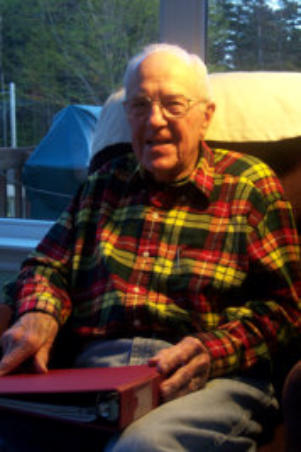
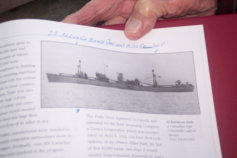
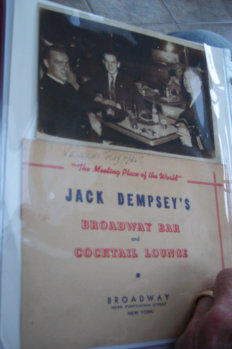
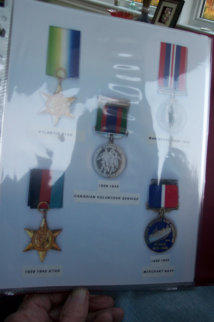
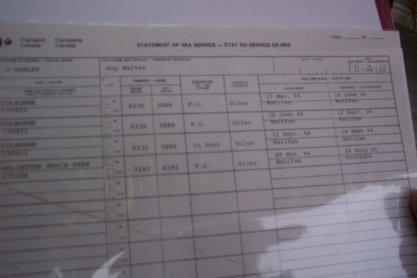

copyright © Wartime Heritage Association
Website hosting courtesy of Register.com - a web.com company
Roy O’Hanley
Merchant Navy World War II


- World War I - Menu
- WWI Stories and Articles
- Photos - Yarmouth Soldiers
- Selection of World War I Songs
- WWI Casualties of Yarmouth, NS
- Those Who Served - Yarmouth, NS
- WWI Casualties Digby Co. NS
- WWI Casualties Shelburne Co. NS
- Merchant Mariners (1915) Yarmouth, NS
- Canadian Forestry Corps - Non Yarmouth Birth/Residence Enlistments
- US Draft Registry - Yarmouth NS Born


- World War II - Menu
- WWII Stories and Articles
- Telegraphist Air Gunners
- WWII Casualties of Nova Scotia
- US Casualties with NS Connection
- Far East/Pacific Casualties with NS Connection
- Merchant Navy Casualties Nova Scotia
- Nova Scotia WWII Casualties Holten Canadian War Cemetery
- D-Day Casualties - Nova Scotia
- CANLOAN Program Casualties - Nova Scotia
- Battle of the Bulge Casualties - Nova Scotia
- WWII Casualties Yarmouth NS
- Yarmouth Casualties - RCAF RAF Canadian Army WWII
- Yarmouth Co., Marrages WWII
- Casualties Non-Born/Residents with Connection to Yarmouth Co., Nova Scotia.
- WWII Casualties Digby Co., NS
- Non-Nova Scotian WWII Casualties Buried in Nova Scotia
- WWII RCAF Casualties Aged 16-18
- Brothers/Sisters Who Served - World War II













